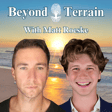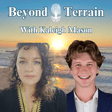
Raising Terrain Based Children with Dr. Andrew Kaufman
Learn more in the the Beyond Terrain Academy, access free resources!
https://beyondterrain.com/beyond-terrain-academy/
Dr. Andrew Kaufman returns to Beyond Terrain to explore what it really means to raise healthy children in the modern world. From preconception planning to navigating childhood “illness,” this episode breaks down the myths of infection, fertility, and parenting—and reframes them through terrain philosophy.
We cover:
- Why true child health starts before conception
- The fertility crisis and cultural/chemical assaults on family
- Why hunter-gatherers never experienced colds, flu, or measles
- “Infections” as detox: the real role of fever, rashes, and elimination
- The dangers of symptom suppression and how to support natural healing
- Parenting styles, tantrums, and developmental responsibility
- The truth about 'inumizishins' and medicalized childhood
Whether you’re a parent, preparing to be one, or simply interested in natural law and sovereignty, this conversation reveals timeless principles for raising the next generation free and strong.
Keep up with me (socials)
https://www.instagram.com/beyond.terrain/
https://beyondterrain.com/
Our vision at Beyond Terrain is greatly supported by sharing our work!
Learn more from and support our esteemed guest, Dr. Andrew Kaufman










![DNA Doesn't Exist & Genomic Nonsense with Dr. Jerneja Tomsic [Part 2] image](https://media.zencastr.com/cdn-cgi/image/width=112,quality=85/image-files/652933f3a749dc383eb375de/ce5a5fd9-98c9-44fe-9b4b-3d0cd5abcf29.png)







